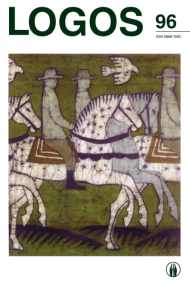CIVILIZACINĖS KOMPARATYVISTIKOS SLINKTYS IR AKADEMINIO MOKSLO
MARGINALIJOSE BUVUSIŲ CIVILIZACINIŲ FENOMENŲ PAŽINIMO AKTUALĖJIMAS
DEVELOPMENTS OF COMPARATIVE CIVILIZATION STUDIES AND INCREASING TOPICALITY OF PREVIOUSLY ACADEMICALLY MARGINALIZED CIVILIZATION PHENOMENA
Author(s): Antanas AndrijauskasSubject(s): Cultural history, Comparative history, Political history, Social history, Social development, Geopolitics
Published by: Visuomeninė organizacija »LOGOS«
Keywords: civilization; culture; civilizational theory and methodology; marginal civilizations;
Summary/Abstract: In the process of radical changes in the world throughout these last several decades, for example, numerous old and new civilizational challenges and conflicts across various parts of the planet, comparative civilization studies has made a major resurrection. It is apparent that today we are living in the era of special topicality of civilizational issues and a golden age of their research which leads to increasing visibility of major theoretical and methodological developments in comparative civilizationl studies. This interest is directly associated with geopolitical shifts within the present world that enters the meta-civilization stage of development and with related radical political, social, and cultural transformations. The article is concerned with theoretical and methodological developments within comparative civilization studies that have become topical throughout the last decade with particular focus on the apparent turn towards understanding new civilization phenomena (for example, those of Meroe, Axum, Mali, Ghana and Songhay in Sub-Saharan Africa, Olmec, Zapotec, Maya, Toltec, Norte Chico, Moche, Sioux and numerous Northern ethnocultural groups in the Americas, and Melanesians, Micronesians and Polynesians in Oceania) that are presented as important not only for deeper appreciation of civilizational history, but also for the better understanding of newest trends forming contemporary meta-civilization.
Journal: LOGOS - A Journal of Religion, Philosophy, Comparative Cultural Studies and Art
- Issue Year: 2018
- Issue No: 96
- Page Range: 156-169
- Page Count: 14
- Language: Lithuanian

